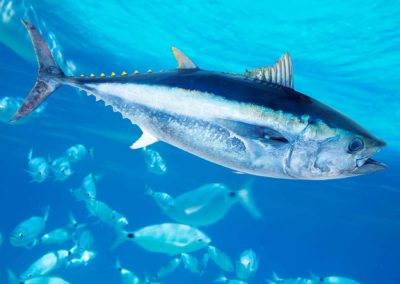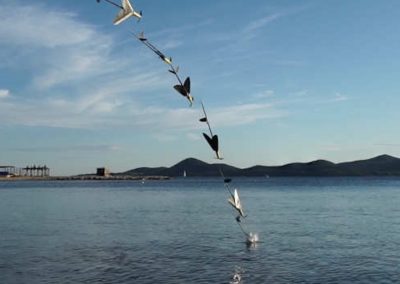Management of pests and vectors of disease
Imperial College London’s International Pesticide Application Research Centre (IPARC) was created in 1955 by the UK Government to train staff in the safe and efficient use of pesticides. At the same time, it began evaluating equipment for the World Health Organisation and later became a WHO Collaborating Centre.
Today, IPARC continues to provide cutting-edge research, training and advisory services for farmers, intermediaries, policy makers and industry worldwide, with many consultants working ‘in-country’.
IPARC strives to achieve responsible, safer and more efficient use of pesticides, resulting in smaller and less frequent quantities of pesticide applied and less off-target spray drift. Its unique focus on the needs of small-holder farmers in OECD countries has helped alleviate poverty and suffering through the improved control of serious agricultural pests and vectors of devastating human diseases such as malaria and onchocerciasis (River Blindness).
The Centre employs a multi-disciplinary approach, bringing together biological, engineering, and other areas of expertise to provide fully informed research. Consultancy work demands that all staff remain up to date with scientific literature and in touch with latest thinking through interactions with international networks
Products and services have included…
- Research on spray nozzles using laser diffraction analysis led to the BCPC spray quality system, which has evolved into an International system.
- Evaluation of a prototype nozzle for Billericay Farm Services led to the ‘Bubblejet’ air induction nozzle, which reduces spray drift. This and similar AI nozzles are now used worldwide.
- Assisted Micron Sprayers with the development and implementation of very and ultra-low volume (ULV) spraying in semi-arid tropics, most widely used on cotton in Francophone countries in West Africa.
- Assisted ICI with the development of the ‘Electrodyn’ sprayer that was used successfully in several countries, including Brazil, Mozambique and Nigeria.
- Provided facilities for CABI and other collaborators on a large bio-control research project known as LUBILOSA to develop the myco-insecticide Metarhizium acridum, which remains the only effective biological control agent against locusts and other pest grasshoppers.
- Development of application techniques for other biopesticides, including insect and mollusc-pathogenic nematodes.
- Provided impartial testing of equipment for indoor residual spraying against mosquito vectors of malaria for the World Health organisation. Pioneered the constant flow control to reduce variability in deposits on walls.
- Provided training courses both in UK and overseas in crop protection and pesticide application technology.
- Collaborative work with CropLife International on various aspects including: responsible use of pesticides, resistance management, disposal of obsolete pesticide stocks and training in the use of application equipment.
- Developing an appropriate method for control of the larvae of Simulium blackflies – the vector of onchocerchiasis or River Blindness – known as ‘SPATE’ (Simulium Pirogue Application Technique) in Cameroon, involving using small boats rather than costly helicopters to treat blackly breeding sites.
- Numerous publications, including books, scientific papers and guidelines
Share post:
Related case studies

Management and conservation of Bluefin Tuna
Risk modelling used to help the International Commission for the Conservation of Atlantic Tunas (ICCAT) improve their plans for Bluefin Tuna harvesting and conservation. read more

Meta study-environmental impact of diamond mining
Skydiamonds commissioned a review of academic, industrial and grey literature on diamond production methods to provide them with a better understanding of the environmental impacts. read more

Bio-Inspired Aerial Robotics
Dr Mirko Kovac is Director of the Aerial Robotics Laboratory at Imperial College London, and Senior Lecturer in Aero-structures. His research focuses on the development of biologically inspired flying robots for distributed sensing of air and water, search and rescue plus autonomous repair and construction. read more
